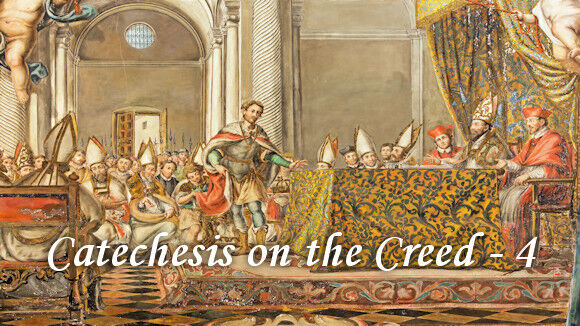
For us men and for our salvation
he came down from heaven,
and by the Holy Spirit was incarnate of the Virgin Mary,
and became man.
This third part of the Creed takes up the mission of Jesus, treating his conception and the virgin birth.
The mission of Jesus is for “us”, it is not independent of men and women, but for a need perceived by God.
Insisting on using the word “men”, which in English is controversial because it sounds like excluding women which it isn’t, is intended to exclude the fallen angels. God was not incarnate for the fallen angels, but only for fallen men and women. The angels had full and direct knowledge of God from the moment of their creation when they were given the choice to serve God or not. Those who refused to serve him have no ability to convert, while men and women do, and we have incomplete knowledge. It is suggested by some that the fallen angels saw they would have to serve men and women in the future, but this inversion of positions did not please them, and they refused to cooperate.
The purpose of the incarnation was for the saving of men and women.
As he was in heaven, he had to come down to become a man.
It was through the working of the third divine person – the Holy Spirit – that he became man, with the cooperation of a woman called Mary who was also a virgin. Some of the details of Jesus divine and human identity were already mentioned in the earlier part of the Creed. Here we are focussed upon his mission – becoming man first of all – which occurred in concrete historical circumstances.
